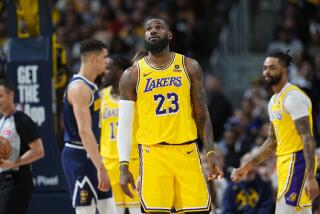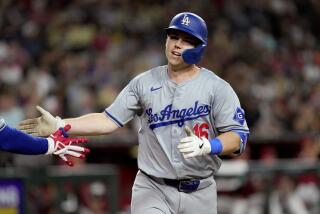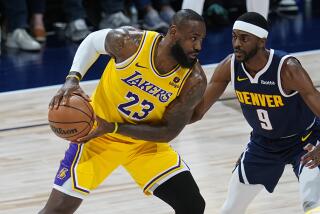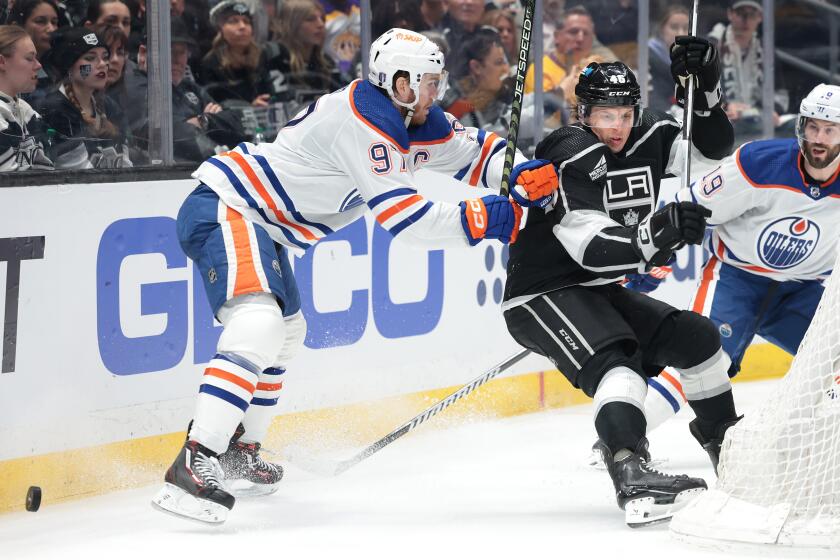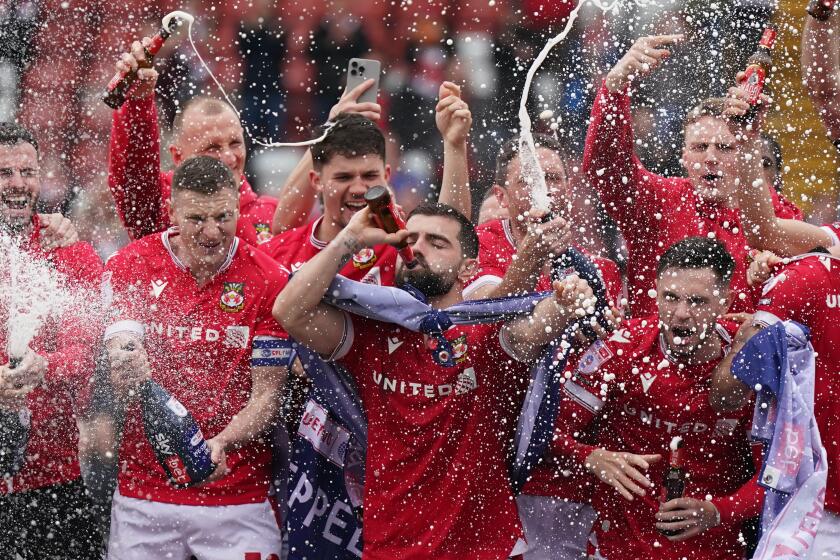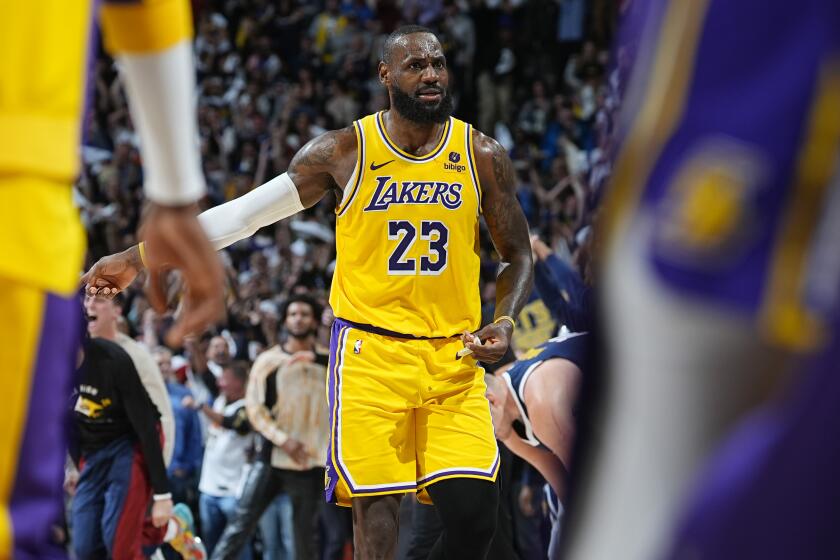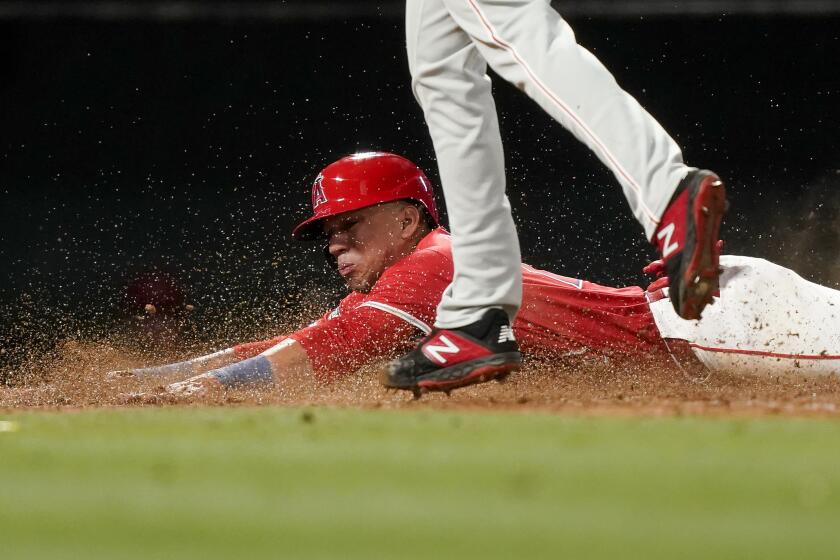Rotisserie League Can Fry a Brain
Item: An editor at one of New York’s most prestigious publishing companies is heading for a two-week European vacation.
“I’m really worried,” he tells a friend.
“I wouldn’t be,” the friend assures him. “There hasn’t been a single incidence of terrorism in a while.”
“Terrorism?” the editor says. “Who cares about terrorism? I’m worried about leaving my rotisserie team.”
Item: The phone rings in the Boston hotel room of Angels Manager Gene Mauch last season. The caller wants to know how much shortstop Rick Burleson, bothered by an injury, can be expected to play in the coming week.
An inquiring reporter? A sneaky official from the opposition? An overzealous fan?
Nope. Just another rotisserie owner checking up on one of his players.
Item: Kansas City Royals reliever Dan Quisenberry had a miserable 1986 season by his own standards, failing time and again to pick up the saves he has become famous for.
He feels worst of all, he tells a reporter, for the many rotisserie league owners unfortunate enough to have selected him.
Rotisserie madness: Catch it!
More and more sports fans across the country are doing just that as the game of the ‘80s sweeps from office building to medical suite to construction site. Rotisserie baseball is a brand of fantasy baseball and is named for the now-defunct New York City restaurant where a group of enterprising journalists developed the game nearly a decade ago.
Very simply put, fantasy baseball owners, drawn from every conceivable walk of life, draft a team of real-life players, make out starting lineups each week and then receive points for the statistics these players collect in the real games they play.
Still with us?
For example, Pedro Guerrero hits a home run for the Dodgers. He may have also homered for the Van Nuys Guys, the Woodland Hills Bills, the Thousand Oaks Folks or any of the other thousands upon thousands of fantasy baseball teams that may have drafted him from the Valley to the sea.
Rules are as varied as the number of leagues. Some owners bid for players, with each owner starting with the same amount, which can vary from $10 to $100 to who knows what. The danger under this system is, if you bid high in the beginning to get a Don Mattingly or a Fernando Valenzuela, you might wind up with four roster spots left to fill and perhaps just 50 cents left to spend. Other leagues simply draw numbers to determine a draft order.
Some leagues give more points for pitching, others for power.
One league has owners spread all over the country, some of whom have never even met each other, but communicate by mail or phone. Another league has one owner in each of 10 cities. Every year on draft day, they meet in a different city to select their teams.
Every league has trades and, for some, that’s the best part. Go down to the Van Nuys courthouse around lunchtime and do a little eavesdropping. You might hear an attorney and a judge involved in a heated debate. Point of law? No, just the point of trading Rob Deer and Greg Brock for Gary Carter.
Rotisseriemania has expanded to football and basketball. If you love the idea, but don’t have the time or the expertise to do it, no sweat. A guy in the Midwest is offering to act as commissioner of your league. He’ll add up all the stats, keep the standings and settle disputes for a fee.
All this insanity has brought a whole new meaning to the word “fan.” Next time you’re sitting in Dodger Stadium, watching your hometown heroes play the Giants, and the guy next to you jumps up and screams when Chili Davis smacks a homer, don’t automatically attack him for being a hated Giant fan.
It may not be that at all. This guy may just own Davis on his rotisserie team and is celebrating the blast that has moved him into first place.
The days of armchair quarterbacking are over. Who needs to sit around criticizing Al Davis for going with Marc Wilson at quarterback? Heck, just go out and get your own guy.
Like to see what Ralph Sampson would do on the same team as Magic Johnson? Trade for him.
You, too, can be a general manager. All you need is a little free time and a lot of crazy friends.
More to Read
Get our high school sports newsletter
Prep Rally is devoted to the SoCal high school sports experience, bringing you scores, stories and a behind-the-scenes look at what makes prep sports so popular.
You may occasionally receive promotional content from the Los Angeles Times.
